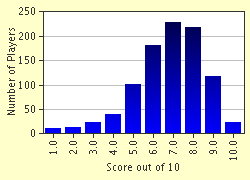Quiz Answer Key and Fun Facts
1. Reading a passage out loud enables some writers to sense a pause and properly place commas but other writers simply have to learn the rules. After which word(s) in the preceding sentence should commas be placed? (The University of Delaware Writing Center website is the source of comma rules used in this quiz.)
2. I am trying to escape a frustrating, recurring, and inevitable cycle. I write a quiz submit it to an editor and correct it. After which words should a comma or commas be inserted in the preceding sentence?
3. Unfortunately, some perverse little comma rules have exceptions. Why does the preceding sentence not read "perverse, little, comma, rules"?
4. Loving punctuation as I do, I find that creating a quiz such as this is pure pleasure. The opening is not an independent clause, so should the comma be removed?
5. When I speak slowly dear reader my wife sometimes completes my sentences for me. In fact, she completed the previous sentence. Where should one place the commas that my wife left out?
6. Anything, I should think, that interrupts the flow of a sentence, however minor, should, therefore, have commas around it. Were all the commas in that preceding sentence completely, totally, and absolutely necessary?
7. I think a person who "hears" grammar is fortunate indeed. The person lacking this auditory gestalt, I think, operates at a disadvantage. How come one "I think" merits commas while the other "I think" does not?
8. The comma, which many feel has an aesthetically pleasing shape, is also used to enclose information not essential to the main idea of the sentence. Were the commas in the preceding sentence necessary?
9. The University of Delaware Writing Center has a final rule for comma usage. "Use commas," they advise "to set off expressions such as 'he said', 'she asked', and 'they shouted' from direct quotations." Where is the comma missing in the preceding sentence?
10. I ask you gentle reader, if I construct a convoluted, misbegotten, wordy sentence that is loaded with a truly, stupefying number of seemingly useless, redundant, and annoying commas, then will Word 2003 grammar checker, created by Microsoft, find at least one extraneous, unnecessary, or superfluous comma?
Source: Author
uglybird
This quiz was reviewed by FunTrivia editor
fringe before going online.
Any errors found in FunTrivia content are routinely corrected through our feedback system.

